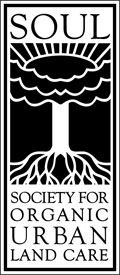In October of 2024 SOUL hosted a Special General Meeting
For members to discuss the future of SOUL
The meeting outcome was a general consensus on short and longer-term goals.
Short Term: Update the SOUL’s Standards by adding context about the relevance of ecological land care to address climate change, species extinction and biodiversity loss, and ensure the Standards are presented in a way that is accessible to a wide audience of professionals, practitioners and educators. A SOUL committee is now working on the first draft of this update. If you would like to participate in the review and update process, please email Julia.
Long-Term: Apply for large grants to develop a process to engage diverse stakeholders in the discussion of land care philosophy and practice, and develop resources and practical guidance to support the transition from a relationship of hierarchy to a relationship of care within the complete ecosystem. The first step in this process is gathering together for conversations, sharing ideas and co-creating the next steps. We’ll be working to practice a consensus approach both in designing a process and in the creation of whatever resources we eventually agree would be appropriate. For some background, you can find the proposal that was brought to the special general meeting here. If you would like to participate in this process, please email Sundaura.
Our Vision:
Healthy community and environment
through organic land care
The Society for Organic Urban Land Care (SOUL) is a non-profit Canadian organization. It was formed in response to the growing need for ecologically responsible land care practices. An Organic Land Care Standard was first introduced by SOUL in 2003 to address the need for a tool to support a successful transition toward sustainable land care practices by individuals, community, industry and government.
Our Mission
We cultivate knowledge of organic land care
and support its practice.
Our Goals
-
To foster and promote the practice of organic land care
-
To provide opportunities for education in all aspects of organic land care.
-
To establish and promote guidelines, standards and specifications for all aspects of organic land care.
-
To establish procedures for certification of organic land care practitioners
-
To establish and develop a means for the exchange of information and ideas between the public and the organic land care industry.
What is Organic Land Care?
Organic Land Care is the design, construction and maintenance of landscapes using practices and products that preserve and support the health of ecosystems and human communities. Landscapes include natural and created environments including home gardens, parks, campuses, woodlands etc., in urban, rural and suburban settings under human management, and includes the use of edible and ornamental plants.
These practices arise from the understanding that all organisms in nature are interdependent, and in order to enjoy healthy urban landscapes we must foster the health of the entire ecosystem.
Organic Land Care practices go beyond integrated pest management and the replacement of synthetic pesticides and fertilizers with organic alternatives, focusing instead on responding to the unique needs of each site and seeking to provide it with what it needs to become a thriving part of the global ecosystem. Organic Land Care practitioners know that we are but stewards of the land, striving always to work WITH nature, never to dominate it.
The Organic Land Care Practitioner:
- Works with natural systems and processes to encourage and enhance biological diversity and native habitats;
- Optimizes and maintains the life supporting properties of soil, air and water;
- Utilizes renewable, biodegradable and recycled materials from local sources and minimizes waste;
- Considers the wider social and ecological impacts of landscapes and the practices and products used to create and maintain them.
These principles are shared by the Northeast Organic Farming Association OLC, the Society for Organic Urban Land Care, and Oregon Tilth OLC. Please reference each organization’s policies and standards to learn how these principles are applied.


